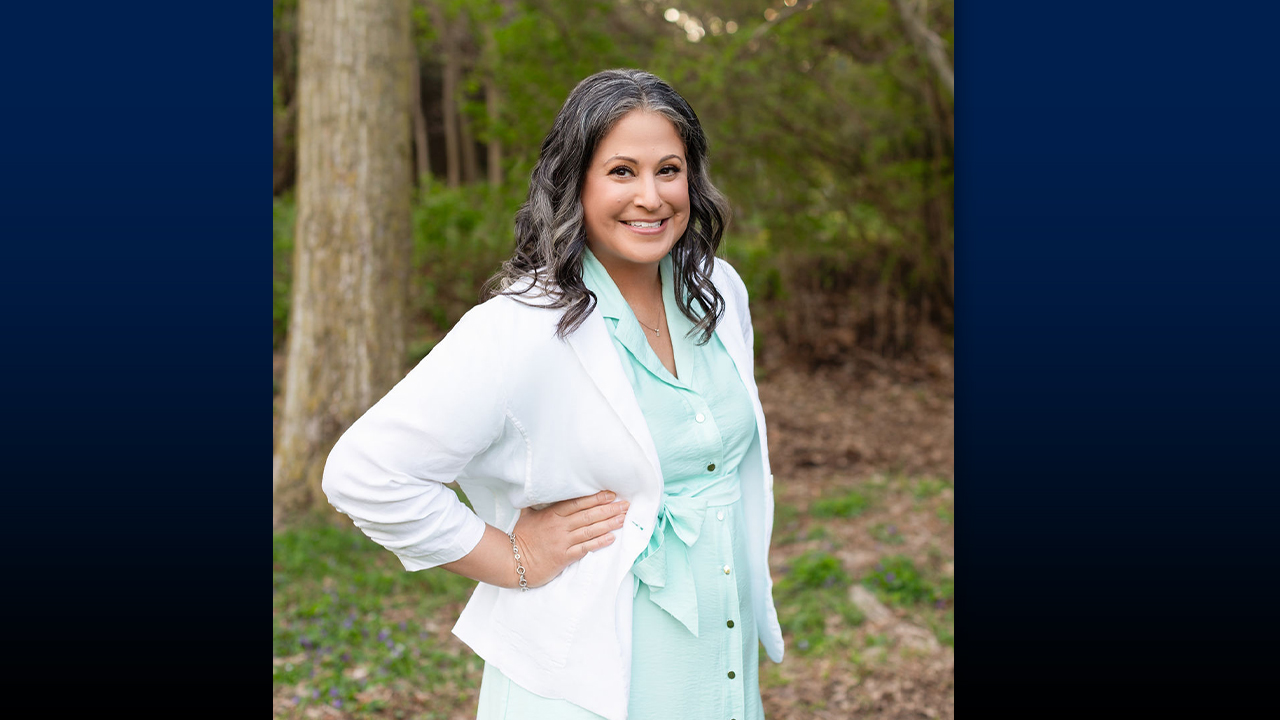
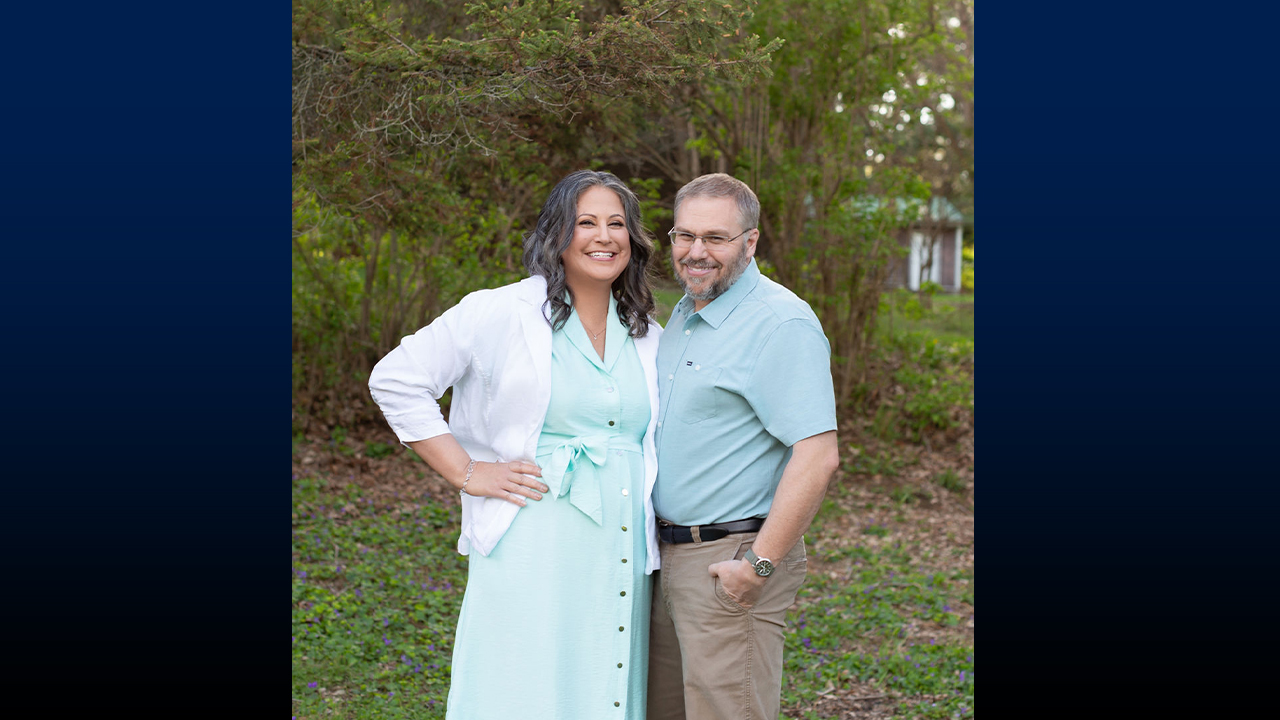
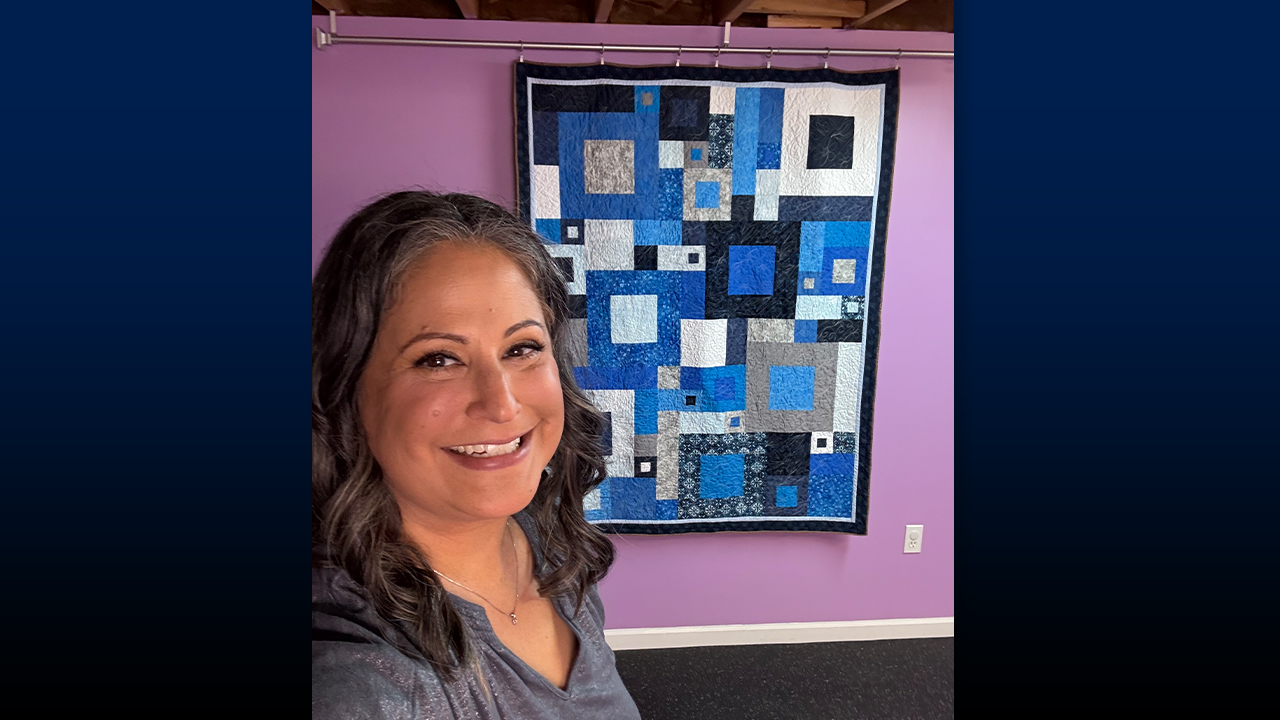
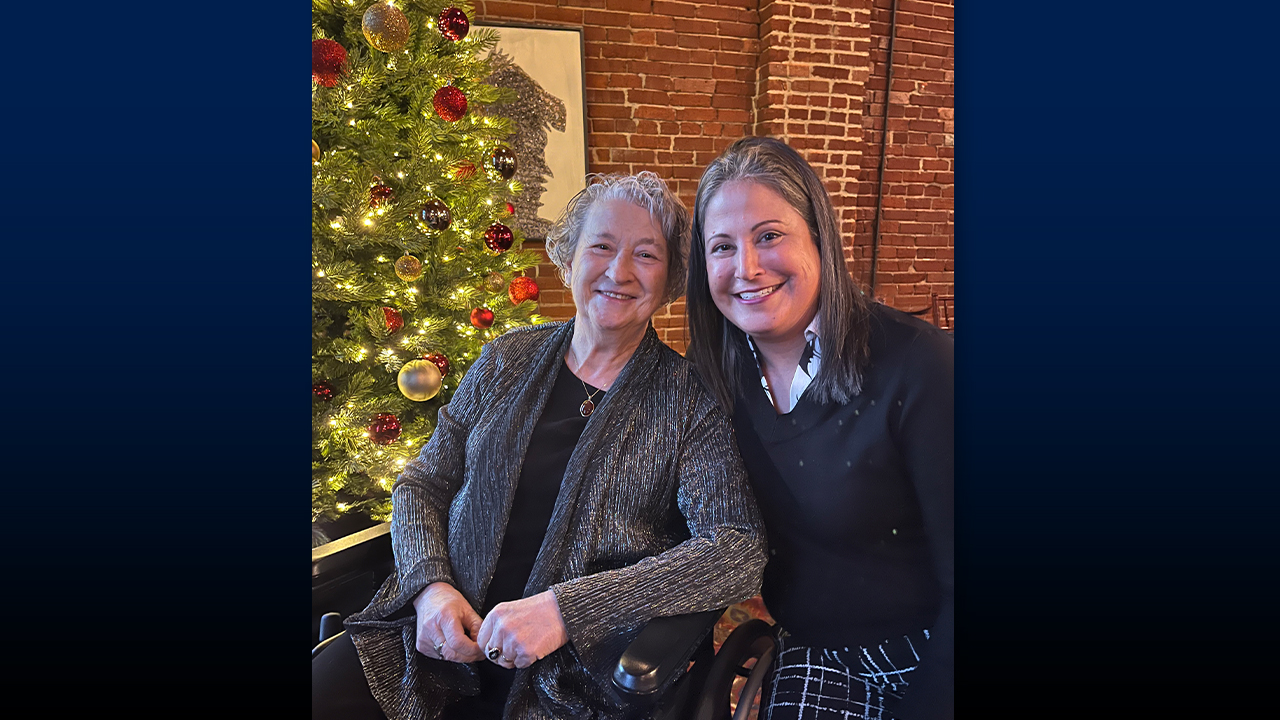
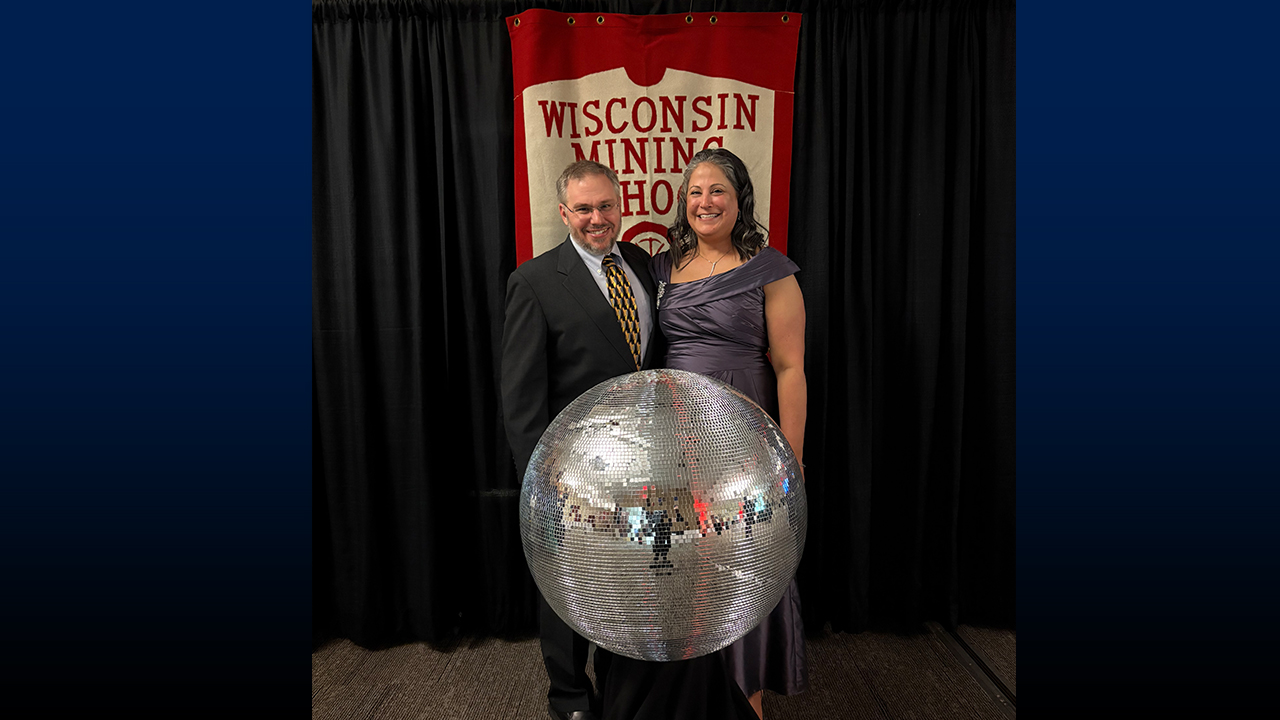
At Convocation each year, the University of Wisconsin-Platteville honors faculty and staff with UW-Platteville and Universities of Wisconsin awards, recognizing their excellence and dedication. In this year’s articles about the recipients, we are spotlighting their journeys, passions and the paths that brought them here.
UW-Platteville has awarded Nadia Sifri, professional academic advisor in UW-Platteville’s Department of Biology, with the Outstanding Professional Advising Award. This award recognizes staff members who provide essential services to the university while demonstrating excellence of performance, personal interaction and initiative and creativity.
Q: What is your official title and what kind of work do you do for the university? I understand you've worn many hats at UW-Platteville!
This summer, I’m transitioning from my role as the professional academic advisor in the Department of Biology, where I’ve advised all our new freshmen, transfer students and upperclassmen, into a new position as Health Sciences program manager. I’m continuing to make sure our students are supported during the transition by leading the Biology New Student Advising Experience.
In my new position, I’ll be focusing on supporting students who are exploring and preparing for careers in healthcare. The goal is to strengthen the healthcare workforce in Southwest Wisconsin by streamlining academic pathways, building partnerships and capturing data that shows our impact. I’ll also be working closely with faculty advisors, providing academic expertise on healthcare career options and ensuring our students have the most up-to-date information and opportunities.
In my previous role, I developed the Biology Peer Mentor Program, co-led our Pre-Health Seminar (PUMP) and taught courses like BioQuest and Essentials of Anatomy and Physiology. So yes, I’ve worn many hats over the years, but they’ve all been centered on one thing: helping students succeed.
Q: Tell me about your development of an online version of UW-Platteville’s Essentials of Anatomy and Physiology class. How do you think that benefits students?
The online Essentials of Anatomy and Physiology course was designed to offer flexibility for students who are managing busy schedules, work commitments, or preparing for healthcare programs that require this foundational knowledge. Developing it online made it more accessible to a broader range of students, including non-traditional learners and those balancing other responsibilities. I also embedded support structures and real-life applications into the course to help students stay engaged and connect the material to their future careers. In my new role, this class is being transitioned to one of our fabulous biology teaching staff.
Q: What’s something about your job that would surprise most people?
Until recently, I was officially assigned around 100 students at a time, but in practice I worked with over 180 unique students each year through new student enrollment, transfers and transitional advising. What might surprise people as I move into a new role, is that there's a national advising organization just for healthcare advisors! It’s been eye-opening to connect with colleagues across the country who do similar work and share best practices for supporting students pursuing careers in health professions. I’m still learning the full scope of my new position, but one thing that’s always surprised me and continues to, is just how much of advising happens outside of course registration. Some of the most meaningful moments come when a student feels safe enough to share a challenge, a turning point, or even a dream they didn’t think was possible.
Q: What’s been one of your most memorable moments working with students?
There have been so many meaningful moments that it’s hard to choose just one. Some of the most memorable have come when students circle back, sometimes years later, to share that something I said or did that made a real difference for them. Whether it was helping them through a tough semester, encouraging them to apply for a program, or just listening when they needed support, those small, everyday interactions often turn out to be the most impactful.
Q: What’s one piece of advice you always find yourself giving to students?
Give yourself permission to not have everything figured out. It’s okay to explore, to change your mind and to ask for help. College is a time to discover not just what you want to do, but who you want to become — and that process isn’t linear. Also: use a planner!
Q: If your work style had a theme song, what would it be and why?
Probably “Eye of the Tiger.” There’s a rhythm to advising seasons: you gear up, you dig in and you keep showing up. It’s all about endurance, compassion and pushing through challenges alongside your students. Also, a little motivational music never hurts!
Q: If you could teach a totally unrelated class just for fun, what would it be?
I’d love to teach a class on self-care and mindfulness through movement. As a certified yoga instructor, I’ve seen how much value there is in learning to slow down, breathe and reflect, especially for students navigating stress and transition. The class would also include journaling, walking meditations and maybe even some crafting on the side.
Q: What's something you’ve learned from your students over the years?
Resilience. Repeatedly, I’ve seen students face enormous obstacles including personal, academic and financial and still find the strength to persevere. They’ve taught me that success isn’t always about grades; it’s about grit, growth and human connection.
Q: When you're not working, what’s your favorite way to unwind or recharge?
Yoga and bike riding with friends are my go-to activities. They both help me reset physically and mentally. I also love quilting, hiking with my family and making goat milk soap from our small herd. Anything that involves being creative or connecting with nature helps refill my cup.